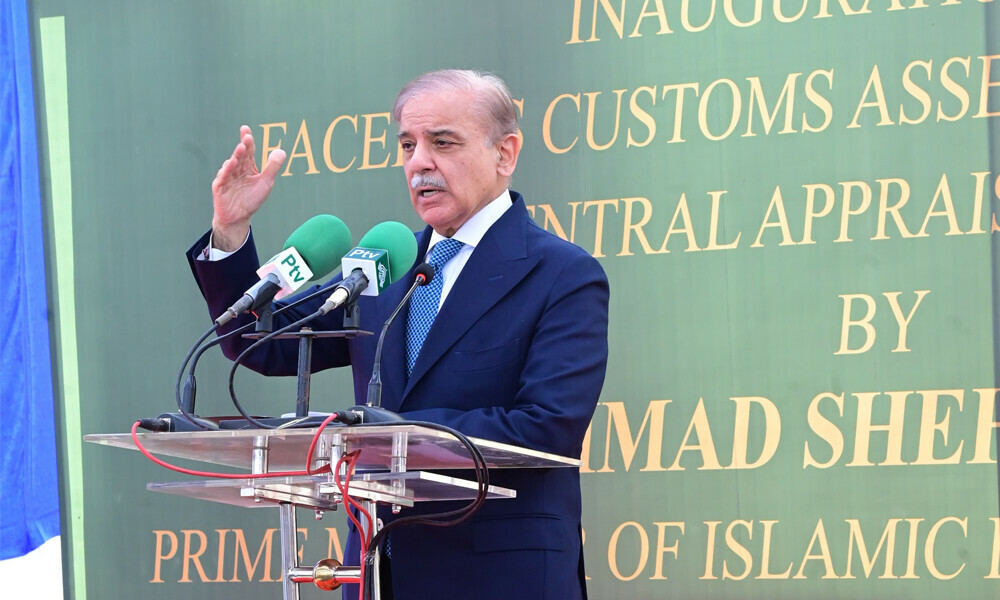PTBP Web Desk
The Federal Board of Revenue (FBR) released its tax collection data for the fiscal year 2023-24, which reveals a significant shift in the composition of the country’s tax revenue.
According to the data, domestic tax collection has grown substantially, making up 65 percent of the total tax collection, while the share of tax collected at the import stage has decreased to 35 percent. This shift highlights the evolving dynamics of Pakistan’s tax landscape, with a greater reliance on domestic revenue sources as opposed to taxes on imports.
In the fiscal year 2023-24, tax collection from imports constituted 35 percent of the total tax revenue. This marks a decline from 39 percent in 2022-23 and a more significant drop from 49 percent in 2021-22. The downward trend in import-based tax collection underscores a shift in FBR’s focus towards enhancing domestic revenue collection and reducing dependence on imported goods as a primary source of tax income.
Within the category of import-based taxes, the share of customs duty also saw a slight decline. In 2023-24, customs duty contributed 12 percent to the total tax collection, down from 13 percent in 2022-23. This decrease aligns with the broader trend of declining tax revenue from the import stage and reflects the FBR’s ongoing efforts to shift the burden of taxation from imports to domestic sources.
Conversely, domestic tax collection has increased steadily over the past few years. In 2023-24, the share of domestic tax collection rose to 65 percent, up from 61 percent in the previous fiscal year. This marks a significant improvement from 51 percent in 2021-22, demonstrating the FBR’s growing success in tapping into the domestic economy for revenue generation.
The rise in domestic tax collection is primarily attributed to improved mechanisms for collecting taxes on goods and services within the country. The government’s focus on formalizing the economy and enhancing compliance among local businesses has played a crucial role in this upward trend.
Sales tax, a major component of Pakistan’s tax system, also exhibited a shift in collection trends during the fiscal year 2023-24. The FBR’s data shows that 47 percent of the total sales tax collection came from domestic sources, while 53 percent was collected at the import stage. This represents a positive shift towards domestic sales tax collection, which was only 44 percent in 2022-23 and even lower at 35 percent in 2021-22.
The reduction in the share of sales tax from imports is equally notable. In 2023-24, the share of sales tax collection from imports dropped to 53 percent, down from 56 percent in the previous fiscal year. In 2021-22, import-based sales tax accounted for a significant 65 percent of the total sales tax collection. This ongoing reduction highlights the FBR’s efforts to bolster domestic revenue generation.
Federal Excise Duty (FED) is another key component of Pakistan’s tax system. According to the FBR’s data, the share of FED collected from domestic supplies dropped slightly from 96 percent in 2022-23 to 94 percent in 2023-24. Meanwhile, the share of FED from imports increased from 4 percent to 6 percent during the same period.
This minor shift suggests that while domestic supplies remain the dominant source of FED, there has been a slight increase in FED collection from imported goods, potentially due to changes in import patterns or adjustments in excise duty rates on certain goods.
Income tax collection has also seen a continued shift towards domestic sources. In 2023-24, 92 percent of the total income tax (IT) collection came from domestic sources, compared to 90 percent in the previous fiscal year. This trend represents a steady increase from 86 percent in 2021-22, highlighting the FBR’s success in capturing more income tax revenue from within the country.
On the other hand, the share of income tax collected from imports declined slightly, from 9 percent in 2022-23 to 8 percent in 2023-24. This decline reflects the broader trend of reducing reliance on import-based taxation as a primary source of income tax revenue.
The FBR’s data for 2023-24 reveals a clear trend: Pakistan is gradually shifting its tax collection focus from imports to domestic sources. This shift is in line with the government’s broader goals of strengthening the domestic economy and reducing dependence on imports, which have historically been a significant source of tax revenue.
The increase in domestic tax collection, particularly in the areas of sales tax and income tax, indicates that the government’s efforts to formalize the economy and improve tax compliance are beginning to pay off. By expanding the tax base within the country, the FBR is not only generating more revenue but also ensuring a more sustainable tax system that is less vulnerable to fluctuations in international trade and imports.
Furthermore, the decline in customs duty and import-based tax collection may also reflect changes in trade policies or a reduction in the volume of imports. As Pakistan continues to pursue economic reforms, it is likely that the focus on domestic revenue generation will intensify, with further efforts to capture untapped areas of the economy.




